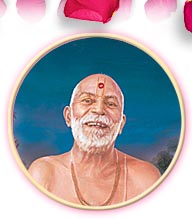|

Jinabhai was studying in the fifth standard. Tribhovandas was the headmaster of his school. He was a very hot-tempered man. One day, Tribhovandas severely thrashed a boy named Chandu. Jinabhai could not bear to see the boy suffer. He felt pity for Chandu, who was innocent of any wrongdoing. Jinabhai started chanting ‘Swaminarayan, Swaminarayan’. Chandu screamed with pain. Tribhovandas continued thrashing him until he fell down unconscious. The children ran helter-skelter out of fear of the teacher. Later, Chandu died as a result of the severe beating. Chandu’s father reported the case to the inspector, and an inquiry was opened. The inspector came to the school to investigate. But who would dare to bear witness against the headmaster?
The inspector asked all the students in the class. But who would be bold enough to report the truth? Jinabhai always spoke the truth. Why be afraid of speaking the truth? Jinabhai was not at all afraid of the headmaster. So, he boldly addressed the inspector, “Our headmaster mercilessly beat the innocent Chandu. He grabbed him by the arm and bashed him to the ground.”
When Jinabhai spoke up, all the other students gained courage and shouted with one voice, “Yes sir, it was the headmaster who beat Chandu.” Looking closely at the forehead of Jinabhai, the inspector saw the holy tilak-chandlo mark. Innocence and honesty were written on Jina’s face. He believed Jinabhai and immediately dismissed the headmaster. He also rewarded Jinabhai with a prize for fearlessly speaking the truth.
The truthful always triumph. Therefore we should not be afraid of telling the truth. We should form a habit of speaking the truth from early childhood.
|









